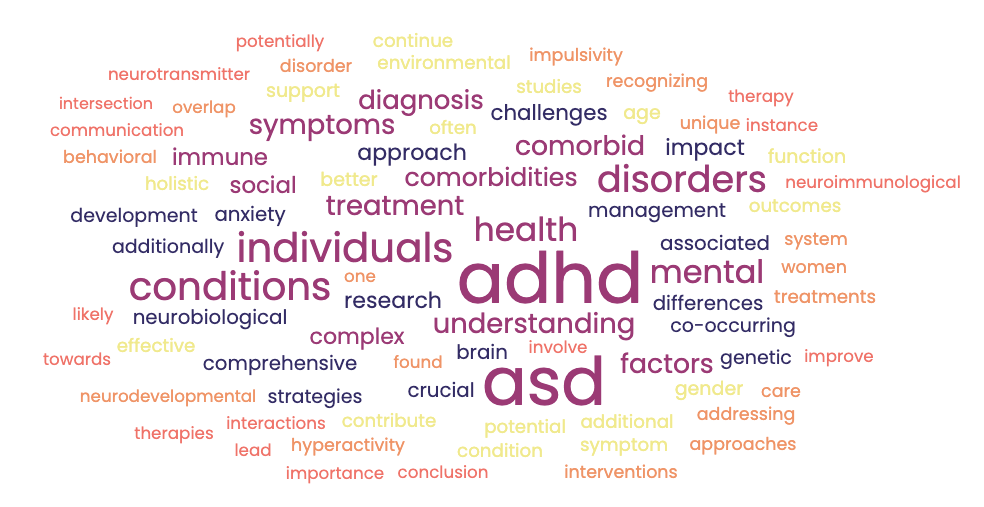Navigating the Path to Healing: How to Find the Right Therapist for You
The decision to seek therapy is a powerful affirmation of one’s desire to explore personal growth and emotional well-being. For many, this marks the beginning of a profound journey toward recovery and self-discovery. Yet, finding the right therapist is a critical step that can feel as challenging as it is important. With numerous therapeutic modalities and a myriad of practitioners to choose from, how do you ensure that you select someone whose services are truly aligned with your goals and needs?
In this comprehensive guide, we’ll walk you through the essential considerations to help you evaluate potential therapists. We’ll share firsthand experiences and practical advice to demystify the process, whether you’re new to therapy or looking for a better therapeutic relationship
Define Your Therapy Goals and Needs
Before you begin your search, clarity about what you wish to achieve in therapy is crucial. Reflect on your main concerns and what you hope to work on with a therapist. It could range from managing anxiety or depression, dealing with past trauma, or simply wishing to gain greater self-awareness.
Identifying your goals early helps to narrow down the field of potential therapists who are best equipped to assist you. Remember, therapy is a tool for your benefit, and your goals should be at the heart of the therapeutic experience. Additionally, consider any specific needs you may have, such as a therapist who specializes in relationship issues or medical diagnosis or has experience working with diverse cultural backgrounds.
Verify Licensure and Accreditation
Ensuring that a therapist is licensed and accredited is non-negotiable. Proper credentials indicate that the person has met the required education, training, and ethical standards to practice. Check with your state’s professional board to confirm the therapist’s qualifications and any other pertinent information about their professional standing. You can also verify accreditation through a reputable organization such as the State Board of Psychology, the American Psychological Association, or the American Counseling Association.
Assess Specialization Matching Your Concerns
Most therapists have areas of specialization which are often aligned with certain conditions or issues, like anxiety disorders, depression, family dynamics, and more. Research and choose a therapist whose expertise corresponds to your specific concerns. This increases the likelihood of receiving care that is attuned to your particular situation.
Evaluate the Therapist’s Approach and Philosophy
The approach a therapist takes—cognitive-behavioral, psychodynamic, humanistic, etc.—can greatly influence your therapy experience. Spend time learning about the different modalities and consider how each aligns with your preferences. Some may offer a more structured framework while others focus on deeper, more exploratory conversations. It’s essential to choose an approach that resonates with you and feels comfortable.
Additionally, a therapist’s personal philosophy on mental health can play a significant role in their therapeutic style. Some may focus on illness and symptom management, while others emphasize growth and self-actualization. Determine what priorities matter most to you as this will guide your search for the right therapist.
Consider Experience and Track Record
Experience counts when it comes to therapy. Inquire about the therapist’s track record and success rate with conditions similar to yours. Seasoned therapists may bring a wealth of insights and techniques to their practice, contributing to a more effective therapeutic outcome. However, keep in mind that a therapist with less experience may still be an excellent fit for your needs, especially if they demonstrate a strong commitment to ongoing professional development.
Factor in Gender and Cultural Considerations
The gender of your therapist may or may not matter to you. Some people feel more comfortable discussing personal issues with someone of their own gender while others prefer the opposite. It’s a personal preference that should be considered when selecting a therapist.
Likewise, cultural competence is crucial in therapy. If you belong to a specific cultural or ethnic group, seek out therapists who have experience working with individuals from that background. A culturally competent therapist can offer unique insights and understandings of your experiences and help create a safe space for exploring sensitive topics related to your culture.
Review Logistics: Location, Availability, Fees
Practical matters such as location, schedule flexibility, and cost are key factors that affect your ability to consistently attend therapy sessions. This logistical side of selecting a therapist shouldn’t be overlooked, as it could impact your long-term commitment to the therapy process.
Seek Referrals from Trusted Sources
A trusted healthcare provider, friend, or family member can be an invaluable resource in your therapist search. They may provide referrals based on positive experiences. However, remember that each person’s therapy experience is personal, and what works for one might not work for another.
Trust Your Instincts and Build a Connection
Ultimately, the most critical factor in choosing a therapist is trust. Your gut feeling about a therapist’s personality and approach can be a powerful guide in your decision-making process. Pay attention to how you feel during initial consultations and trust your instincts. If something feels off or uncomfortable, it may be a sign that this particular therapist is not the right fit for you.
In conclusion, finding the right therapist is an individual process that requires self-reflection and research. By defining your goals and needs, verifying credentials, considering specialization and approach, evaluating experience and track record, factoring in gender and cultural considerations, and trusting your gut, you can navigate the path to healing with confidence. Remember that therapy is a partnership between client and therapist, and it’s essential to find someone who is the right fit for you. By following these guidelines, you can make an informed decision and embark on a therapeutic journey that can profoundly impact your well-being. So don’t be afraid to take your time and choose carefully; your mental health deserves nothing less. Keep in mind that finding the right therapist is just one step in the process, and ultimately, it is your willingness to be open and vulnerable that will determine the success of your therapy. Trust yourself and trust the process; you are taking a brave step towards growth and healing. So take care of yourself and keep exploring until you find the therapist who can support you on your journey to wellness. You deserve nothing less than a positive and transformative therapeutic experience. Your mental health is worth it! So take a deep breath, pick up that phone or send that email, and begin your transformative journey towards self-discovery and healing with confidence. The right therapist is out there waiting for you, and together, you can overcome any challenges and create a life that is fulfilling and meaningful. Trust the process and yourself, and let your journey toward mental health wellness begin! Don’t hesitate to reach out for help; you are not alone on this journey. Remember that seeking therapy is a brave step towards self-care, growth, and healing.
Personal Anecdotes on Finding the Right Therapist
Reflection on the Initial Search: Importance of Defining Therapy Goals
Starting out, the quest for the right therapist was fraught with uncertainty. I quickly realized the importance of defining clear therapy goals. My process became more focused, and the murky terrain of options began to clear up.
First Meeting Relief: Aligning Personal Preferences with Therapist’s Style
The anticipation of meeting a new therapist turned into relief when I felt heard and understood. This moment underscored the necessity of a therapist whose style and approach resonated with my preferences.
Overcoming Stigma: Sharing Therapy Decision and Trusted Referral
Initially, fear of judgment made me hesitate to disclose my therapy plans. However, opening up to a close friend not only lifted a weight off my shoulders but also led to a referral that was instrumental in my therapist search.
Journey of Therapist Switches: Learning Curve to Finding the Perfect Fit
My therapy history includes numerous switches. Each stint with a different therapist honed my understanding of therapeutic approaches and played a crucial role in ultimately finding the therapist who was just right for me.
Conclusion
Choosing the right therapist is a nuanced and highly personal undertaking. Each step—from clarifying your therapy goals to feeling a genuine connection—builds towards a choice that can significantly impact your healing process. Arm yourself with knowledge, and tackle the search with a mix of mindfulness and practicality. There’s no one-size-fits-all solution, but staying true to your needs and preferences will guide you in selecting a therapist who can best support your mental health journey.
Remember, therapy is an investment in your future, and finding the right partner for that investment is essential. May this guide serve as a companion on your path to finding a therapist who can help pave the way to healing and self-discovery.
Remember to stay encouraged and maintain perspective; finding the right therapist is a leap forward on your path to personal growth and fulfillment. Keep an open mind, trust the process, and never hesitate to seek help when needed. Your mental health matters. You deserve support, understanding, and compassionate care. Best of luck on your journey towards self-discovery and healing. Happy therapy hunting!







